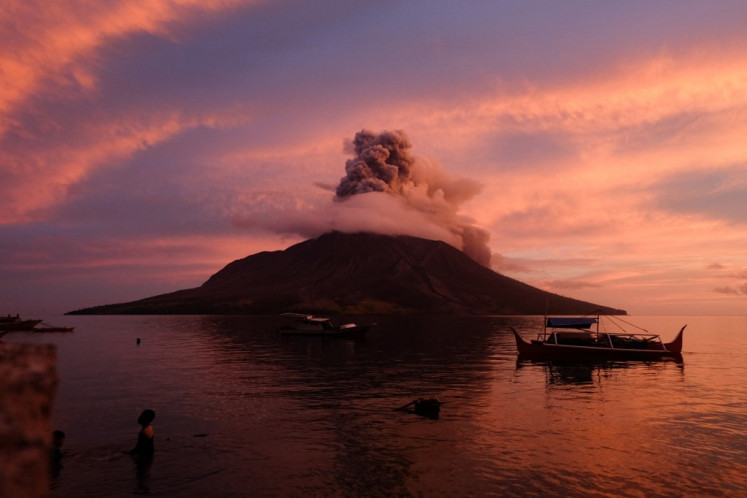The social agenda in 2014
In the new year, social issues will form an important part of the agenda â including health, water, environment and the rising cost of living
Change Size

I
n the new year, social issues will form an important part of the agenda ' including health, water, environment and the rising cost of living.
While political events will no doubt dominate the news in 2014, social issues such as health and environment and coping with the rising cost of living will be just as important in the new year.
Good health is the basis of everything else that is positive in life. Thus, a preview of key social issues in 2014 should begin with health.
In Malaysia, a major concern is the dramatic rise in dengue, with 39,222 cases in 2013, a 90% jump from a year before.
There is a re-emergence of the deadly human variety of avian flu, with 47 deaths from 147 cases in China coming from the new H7N9 strain in April-December last year.
A few years ago there was the expectation that a flu epidemic could sweep through the world, affecting millions of people. The flu pandemic in 2009 killed thousands of people, including in Mexico and Indonesia, but it was fortunately contained.
Experts believe it is a matter of time before there is another and possibly more deadly outbreak of flu or other epidemics.
Action is also urgently needed to curb antibiotic resistance, which is a medical time-bomb of our times.
The WHO director general Margaret Chan warned that we are approaching the end of modern medicine and a post-antibiotics era as many disease-causing pathogens are becoming immune to many antibiotics.
This has resulted in a resurgence of deadly diseases like TB. Some strains of malaria are also becoming resistant to the usual medicines used to treat it.
Late last year the United States announced action to phase out the use of antibiotics in animal feed, following similar action in some European countries. Using these drugs in livestock is cause of the rapid rise in antibiotic resistance.
Thia year should see more actions to slow down resistance, especially in developing countries. The WHO assembly in May is expected to highlight this issue.
On the environmental front, water issues deserve our top priority. The oceans are warming, due to climate change, and this results in the increased rainfall and floods, especially in Asia.
On the other hand there is an increasing shortage of water as sources of water retention are damaged for example by deforestation, hill cutting and urbanisation.
Meanwhile, the demand for water rises as agriculture and industry compete with households for its use.
Last year saw parts of Malaysia, especially the Klang Valley, suffering from acute water shortages. A long-term strategy with short-term action plans is needed to conserve, retain and manage water and its use.
Climate change-induced storms and other extreme weather events can be expected as well this year.
In the Asian region, the Philippines, India, Bangladesh, China, Indonesia and Japan have taken the brunt of the effects in recent years, Malaysia could also be affected in future.
Thus, the setting up of an emergency response committee in Malaysia to deal with natural disasters, announced by the Prime Minister last week, is an important step forward.
More attempts will be made in 2014 to make progress on a global agreement on how to prevent the worsening of climate change and cope with its effects, since there is a 2015 deadline for a new deal.
But the progress will be slow unless the major developed countries radically change their own climate policies while becoming serious about assisting developing countries with funds and technology.
The recent policy reversals of Japan (which changed its target of reducing emissions by 25% to increasing them by 3% by 2020 from 1990 levels) and Australia (whose new government is cancelling the carbon tax and other climate policies of the previous government) are negative signals.
There is little in climate financing of technology transfer either. So how can developing countries be expected to rise sufficiently to the enormous climate challenge? An important question to answer in 2014.
On the social front, the good news is that the economies of the United States and Europe have not sunk into the deep crisis that some had expected this time last year.
But their economic recovery is tepid and the social situation will deteriorate this year, as governments follow the new fashion of slashing their budgets and stopping social protection programmes such as welfare and food benefits.
In Greece, life expectancy has gone down from 81 to 78 years in four years since its economic crisis began, while HIV cases tripled in the past decade.
Another 2014 problem in many countries will be inflation. In India, which has Asia's highest inflation rate, consumer prices rose by an annual rate of 11% in November; as part of that, onion prices have trebled.
Malaysians will count the rising cost of living as a major social problem this year, as subsidies are cut and rates and prices go up. The price rise in coffee and some hawker foods in the first week of 2014 is a taste of what is to come.
The United Nations (UN) will formulate sustainable development goals this year, which are meant to reflect the priorities and targets for social, economic and environmental issues.
The UN will thus provide a global forum for debate on what governments and civil society groups see as the goals to reach for in 2014 and beyond.
A higher standard of living, eradicating poverty and social inequalities, generating enough jobs especially for young people, ensuring enough food and health care for all, while at the same time guarding the environment, providing water and coping with climate change and natural disasters.
These are some of the candidates for the UN's 'sustainable development goals'.
May people pay enough attention on how to improve the lot of the world's people, especially the poor, in 2014. And may enough attention be given to the environment globally and in each country.









